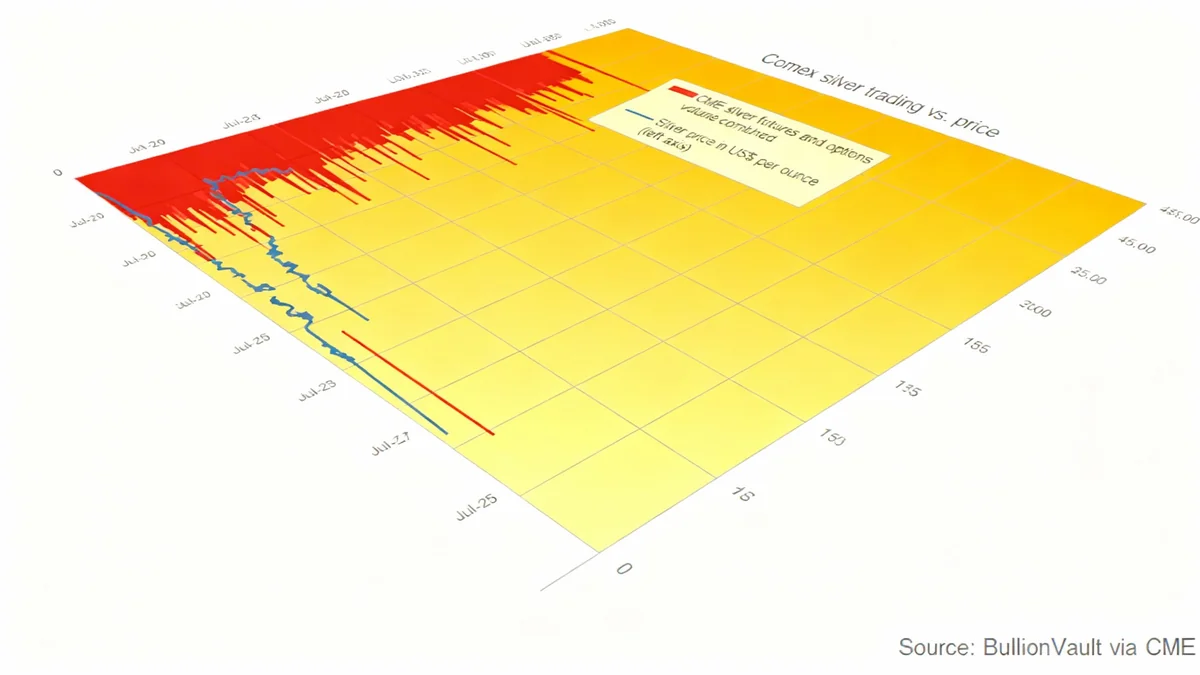An agreement for Advanced Micro Devices (AMD) to supply artificial intelligence chips to OpenAI is creating a positive ripple effect across the technology sector. Wall Street analysts report that the deal is boosting the stock values of several companies partnered with AMD, including server manufacturers and component suppliers.
The partnership, which involves OpenAI committing to purchase multiple generations of AMD's AI accelerators, caused AMD's own shares to surge. This development is now highlighting the interconnected nature of the AI hardware ecosystem, with investors identifying other potential winners from the growing demand for AI infrastructure.
Key Takeaways
- AMD's deal to supply AI chips to OpenAI is positively impacting its partner companies' stock prices.
- Wall Street analysts have identified Super Micro Computer, Dell, and Astera Labs as primary beneficiaries.
- The agreement is viewed as a bullish signal for the broader semiconductor and AI hardware industries.
- Companies involved in AI servers, networking, and memory are expected to see increased demand.
Details of the AMD and OpenAI Agreement
The core of the market excitement stems from a significant commitment by OpenAI, the company behind ChatGPT, to integrate AMD's technology into its infrastructure. The deal ensures that OpenAI will purchase several generations of AMD's artificial intelligence chips, a move seen as a major validation of AMD's capabilities in the competitive AI hardware market.
The immediate market reaction was substantial. Following the announcement, AMD's stock price increased by 24% in a single day, with an additional 4% gain the following day. This surge reflects investor confidence that AMD can capture a meaningful share of the rapidly expanding AI chip market.
A Growing Market for AI Hardware
The demand for specialized processors capable of handling complex AI workloads has exploded. Companies like OpenAI require massive computing power to train and run their large language models. This has created a highly lucrative market for semiconductor firms that can produce these high-performance chips, often called AI accelerators.
Analysts Pinpoint Benefiting Companies
Following the news, investment banks and financial analysts began to identify other companies poised to gain from AMD's success. The logic is that as AMD sells more AI chips, the companies that help build, integrate, and connect these chips into functional data centers will also see a rise in business.
Server and Infrastructure Providers
Analysts at J.P. Morgan released a note to clients highlighting several key partners. They pointed to AI server makers as direct beneficiaries of the increased chip sales. Companies on their list include:
- Super Micro Computer (SMCI)
- Dell Technologies (DELL)
- Hewlett Packard Enterprise (HPE)
These firms specialize in building the high-density server systems required to house and cool thousands of AI accelerators. As AMD ramps up its chip distribution, these server manufacturers are expected to receive a corresponding increase in orders.
Manufacturing and Networking Partners
J.P. Morgan also noted the importance of networking and manufacturing partners. They identified Arista Networks (ANET), which provides high-speed networking equipment essential for connecting AI servers, and Sanmina (SANM), which became a preferred manufacturing partner for AMD after acquiring a data center business from the chipmaker.
The Ripple Effect on Component Suppliers
The impact of the deal extends beyond just server assembly. The intricate systems used for artificial intelligence rely on a host of specialized components, and the suppliers of these parts are also expected to see growth.
Connectivity and Memory Chips
Citi analysts suggested the deal has positive implications for companies like Astera Labs (ALAB). Astera Labs supplies critical connectivity solutions, such as data and memory interconnects, that are necessary for AI data centers to function efficiently. The company, which counts both AMD and its primary competitor Nvidia as customers, saw its stock jump 10% on the day of the announcement before a slight pullback.
"While the announcements till date from OpenAI have largely focused on tight partnerships with semiconductor companies, we expect to see similar partnerships with Hardware and Networking companies as critical to scaling infrastructure," stated a report from J.P. Morgan.
Citi also pointed to memory chip maker Micron Technology (MU) as another company that stands to benefit. Advanced AI systems require large amounts of high-bandwidth memory (HBM) to operate, and increased chip sales from AMD will directly translate to higher demand for memory products from suppliers like Micron.
Broader Implications for the AI Sector
Beyond the specific companies named, analysts view the AMD-OpenAI deal as a healthy sign for the entire AI industry. It demonstrates that the demand for AI computing power is robust enough to support multiple major players, easing concerns that the market was overly dependent on a single chip supplier.
This sentiment has been described by some analysts as a "rising tide that lifts all boats." The massive investment in AI infrastructure is creating opportunities across the supply chain, from raw semiconductor manufacturing to the software that manages the data centers.
The partnership underscores the capital-intensive nature of building cutting-edge AI. As models become more complex, the need for powerful and efficient hardware will only continue to grow, benefiting the entire ecosystem of companies that support this technological shift.





